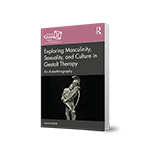

Psychotherapy is for people who would like to take a closer look at their life and the way they relate to others. It is for those who would like to gain a fuller understanding of their abilities, difficulties, motivations and worries. In conjunction with the therapist, clients have the opportunity to discover how their past is affecting the way they function right now. We all have learnt certain ways in which we deal with challenges and difficulties. Psychotherapy allows us to examine these ways and to look at and try alternative ways of solving our problems. Usually, it invites clients to follow their emotions and find the confidence to express them. This enables them to have more fulfilling life and relationships.
It is debatable how psychotherapy differs from counselling. In Gestalt Therapy psychotherapy is a postgraduate profession whilst counselling is an undergraduate one. Furthermore, the training for psychotherapists lasts almost twice as long as for counsellors.
Individual psychotherapy usually takes place once a week at the same time and place. It can be either:
• short term – usually 6 to 12 sessions – more structured and focused on solving the identified problem or situation or
• long term – lasting for a few months and sometimes even a few years.
The first session, sometimes even first few sessions, are more structured and provide an opportunity to meet and to clarify what we will be working on. It is a good time to explore what brought you to the therapy and how it relates to your life in the wider context. During the first sessions, both of us will explore whether this kind of therapy may be helpful for you and the form it will take.
Please be aware that you will have to pay for missed appointments (excluding your planned holidays). I will discuss this and the terms of the service I offer with you in the first sessions.
The sessions are completely confidential except under three circumstances:
(a) I regularly discuss my work with a clinical supervisor, this is standard practice and enables me to provide the best service possible;
(b) if I believe you may be at risk of harming yourself or others, however, I would only do this in extreme circumstances and would always try to discuss it with you first before taking any action;
(c) if required by a court of law to give evidence (e.g. in criminal proceedings).
I subscribe to the UKCP Code of Ethics.
mobile: +44 79 202 555 42
mail: adam@gestalt.uk.com